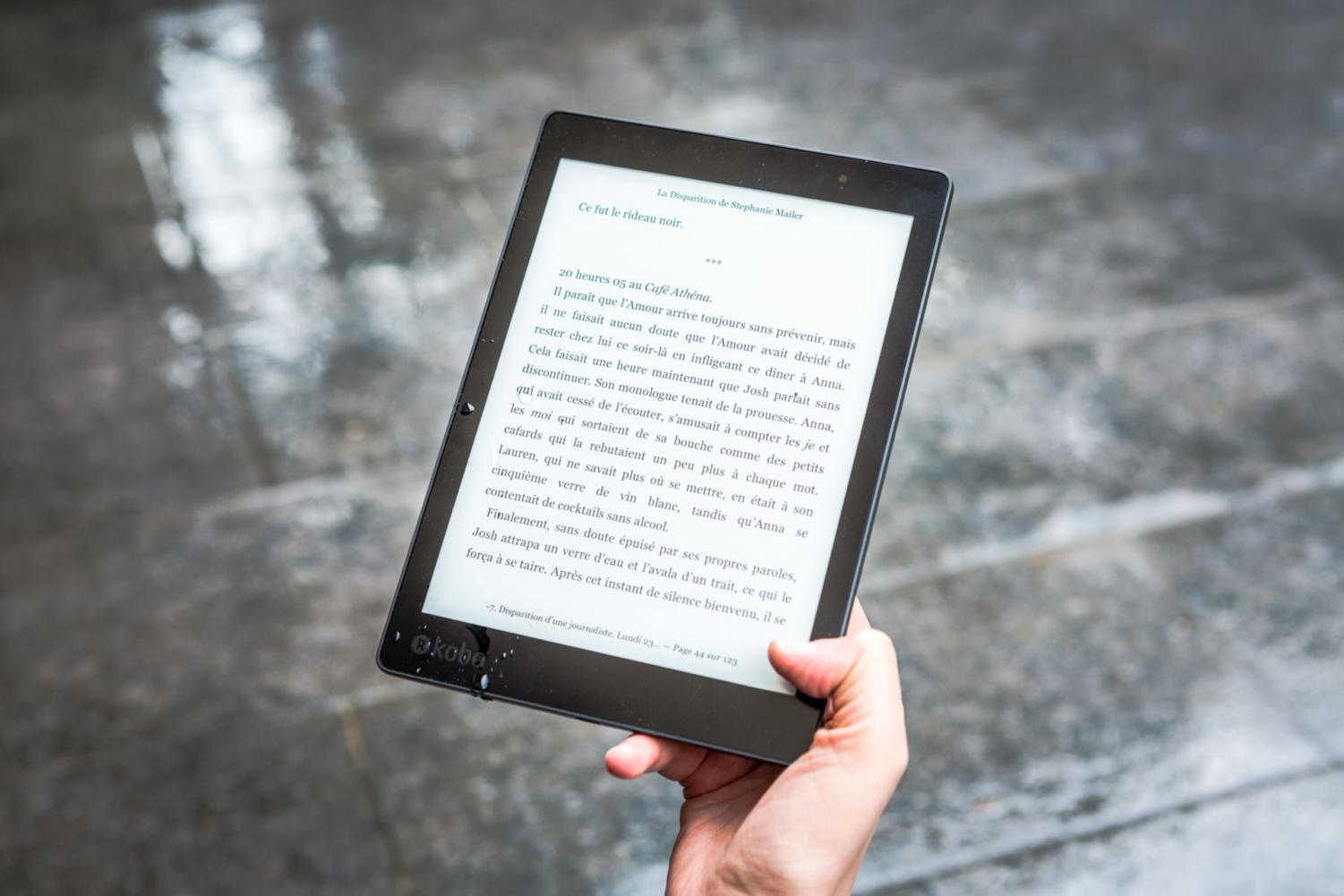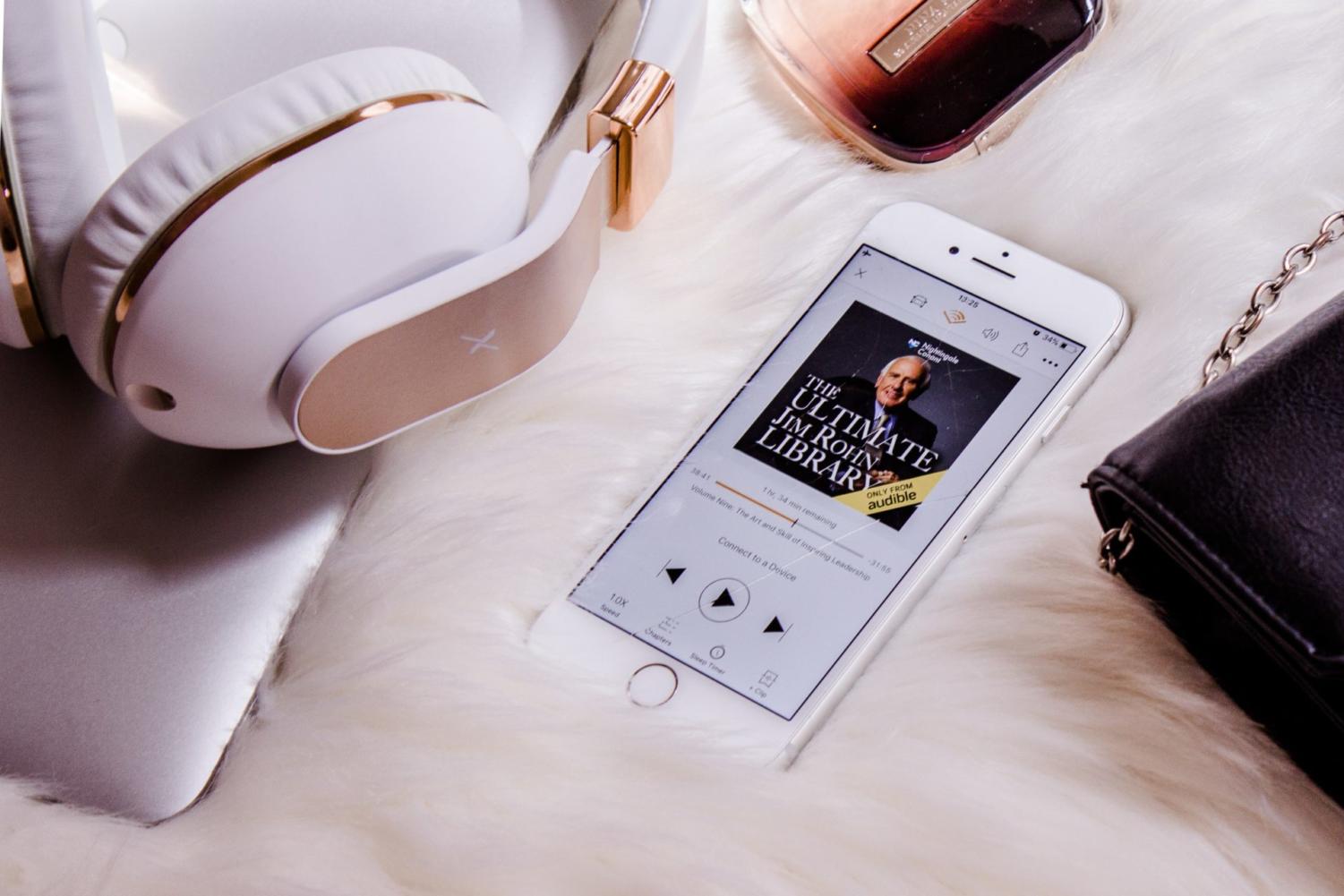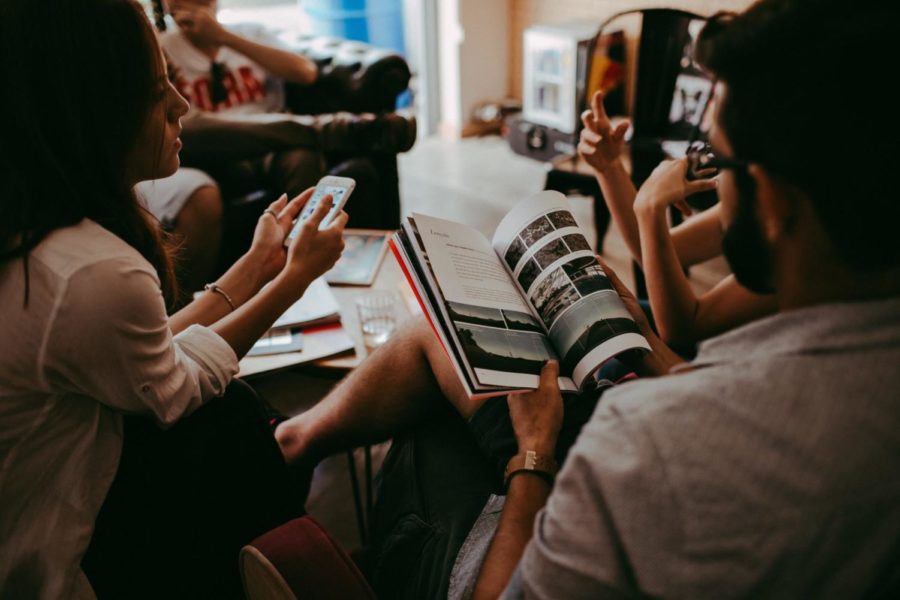Three Ways to Read
January 12, 2023
Reading is a common pastime that many people enjoy. In the past, the only way to read was to go to a bookstore or library and pick up a physical book. While that is still prevalent today, we now have more ways to consume books in the digital age. The two main methods that have arisen are ebooks and audiobooks.
Some people might ask – which way is best? As an avid reader who has enjoyed all three forms, I think that all of them are valid. Each method has their own benefits and disadvantages, and none is objectively better or worse than another. In this article, I’m going to analyze and discuss the pros and cons of physical books, ebooks, and audiobooks.

Physical Books
Paper books: the classic, age old way to read. Just like today, people centuries ago could curl up in a comfy chair with a hot beverage and pull out a book.
Pros:
- Easier on the eyes – Because it’s physical and not digital, you are less likely to get a headache or tired eyes. The blue light from screens can also impact your ability to sleep, so if you like to read before bed, physical books are better.
- You stay more focused – When you don’t have notifications popping up to distract you, you can stay more focused on what you’re reading and be more engaged in the book.
- You absorb more information – Studies have shown that people who read physical books remember the plot and details of what they read better than those who read ebooks
- More motivation – With a paper book, you can easily see your progress. By seeing how much of the book you have left until the end, you might be more motivated to keep reading it.
- They’re sensory – A lot of people prefer physical books for the way they impact their senses. The feel and smell of the pages and the sound of flipping pages are a few examples. Physical books feel nostalgic and cozy.
Cons:
- Less portable – Compared to your phone, a physical book is much harder to bring on a trip with you. A book can’t fit in your pocket, so you can’t easily read on a plane or long drive.
- More delicate – The paper in physical books can be easily torn or spilled on, and the cover and spine can get worn out and bent. In the wrong hands, or in a tight space like a backpack, a physical book could become ruined.
- Inaccessible – A print book is not very accessible for the blind or visually impaired. There aren’t a lot of large print editions of books easily available, but with an ebook, you can enlarge the font size as much as you want or have the text read aloud. With a physical book, magnification equipment is usually needed to be able to see it.
- Take up space – Physical books take up a lot of space, whether that’s on a shelf or in a bag. Because of this, you’re limited on how many books you can have.
Junior Taylor Morton says that she prefers reading physical books. “I find it easier to pay attention to the story with the book in my hand since it’s a physical object.”
Staff member Mrs. Jolley also likes physical books the most. “There’s nothing like the feeling of reading a book from cover to cover! I prefer seeing progress as I read through a book physically and it’s a nice break from scrolling and audio.”

Ebooks
With apps like Kindle or Libby – an app that connects with you local library and has ebook versions of the catalog – ebooks have been on the rise in the past decade or so.
Pros:
- Portable – A phone, or even Kindle device, is much more portable than a physical book. You can carry it around in your pocket and it barely takes up space.
- Convenient – Since you can carry it around with you easier, you can start reading wherever and whenever you want. If you’re riding on the streetcar or have a short break at work, you can pull out your phone and get a few minutes of reading in.
- Bigger library – Compared to the limited space on a bookshelf, an online library can have thousands of books available at once. You can easily download as many books as you want and save them for later.
- Accessible – With many e-reading apps and devices, you can adjust the color contrast and font size, something that’s very important for people with low vision. Even sighted people could benefit from the comfort of a different size and color.
- Can be cheaper – Although app subscriptions or e-reading devices can be a little pricey, it will ultimately be cheaper than constantly buying print books. You buy a Kindle or Nook one time, then have access to thousands of books for free.
Cons:
- Eye-strain – Because you’re staring at a screen to read an e-book, you’re more likely to get a headache or eye pain.
- Internet and batteries needed – While you can read already downloaded books without internet, you need an internet connection to buy/download books beforehand. Devices also have a battery life. Once that battery runs out, you have to wait a while before continuing your book.
- No refunds – If you buy a physical book and never end up reading it, it’s easy to resell it at a used bookstore or online. With ebooks, once you buy a book, that’s it. If you don’t read it, you don’t get your money back.
- Can’t be read in daylight – You can’t enjoy a good book on the beach or read in the park on a sunny day. The sunlight sometimes makes it almost impossible to see the screen of your phone or e-reading device. Unless you find some good shade, reading outside is not a good option.
Senior Sunaree Alongkornvilai enjoys ebooks the most. “It’s accessible at all times because I almost always have my phone on me. Sometimes, it’s a bother to hold the pages open.”
Staff member Mrs. Quenette prefers to read ebooks. “When borrowing paper books, I have to be more careful about due dates and having my next read reserved and picked up in time. It requires more trips to the library. I can borrow eBooks without leaving my home!”

Audiobooks
If listening to books is more your thing, audiobooks exist. With apps like Libby and Audible, you can have thousands of stories narrated to you from your phone.
Pros:
- Allows for multitasking – It’s easy to listen to an audiobook while doing something else, like chores or simple work. You can’t multitask when reading a physical or ebook because you have to have the book with you and read it yourself.
- Don’t have to look – Listening to audiobooks gives your eyes a rest. You can relax in a cozy chair or try to fall asleep while listening to an audiobook. This also prevents eye-strain.
- Accessible – Not only are audiobooks helpful for blind and visually impaired people, they’re also good for people who are dyslexic or don’t know how to read very well. They don’t have to worry about not understanding the words.
- Portable – Just like ebooks, audiobooks are available on your phone. You can take it with you and listen to a book anywhere.
- Keep you company – An audiobook, like music or a podcast, is a good way to fill the silence of a long car ride. You can also listen to audiobooks while running/jogging. It’s like having a friend with you at all times telling stories.
Cons:
- Narrators are hit or miss – An audiobook is usually only as good as its narrator. If the narrator is boring and uninterested, it can feel like a drag to get through. A bad narrator can make a colorful fantasy novel feel like a textbook.
- Harder to reread – When you don’t have the words in front of you, it’s much harder to go back a few sentences or paragraphs if you happened to miss something. It becomes a guessing game to return to the right spot if it was in the middle of a chapter.
- Takes away some imagination – Part of the fun of reading is picturing the voice of each character and hearing that voice in your head when they speak. With audiobooks, the narrator does all the voices themselves, and sometimes there isn’t much variation between the different voices.
- Easy to miss information – If your mind wanders for a few moments while you’re listening to an audiobook, you might miss crucial information. It’s easier to get distracted and not as easy to quickly reread specific parts.
Staff member Mrs. Baker listens to audiobooks more. “I really like all books, but audiobooks are great for traveling in the car, listening to while I’m taking a walk/exercising, or while I’m doing chores around the house.”
Junior Blake Taber prefers audiobooks to the other two mediums. “It helps me visualize the story better because I’m not looking at words and can close my eyes.”
What’s the Most Popular?
Here at Bonner Springs High School, physical books are by far the most popular. Out of 86 staff and students surveyed, 66.3% said that physical books were their favorite. Audiobooks were second, getting 19.8% of the votes. Ebooks followed close behind with 14% of staff and students preferring them.
Among just the staff, 61.3% prefer physical books, and ebooks and audiobooks are tied with 19.4% each.
Surprisingly, the student body prefers physical books a little more than the staff, with 69.1% voting for them. Ebooks are preferred by 10.9%, and audiobooks 18.2%.
